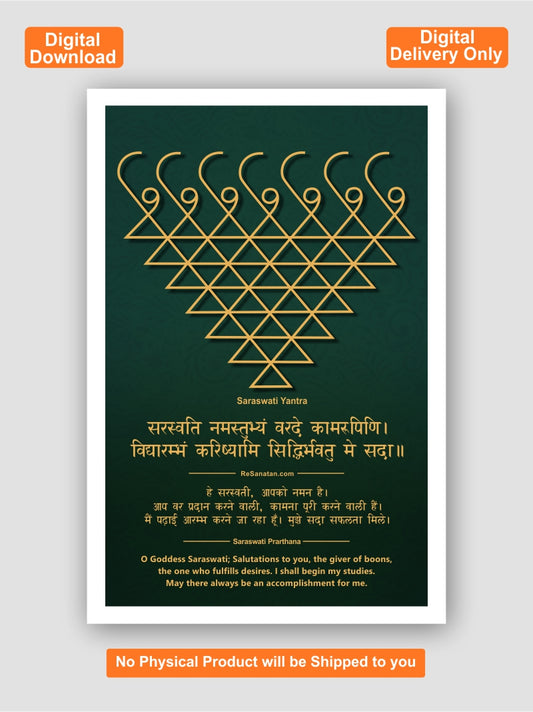Nestled in the tranquil suburbs of Riverdale, Georgia, the Hindu Temple of Atlanta stands as a majestic beacon of faith, culture, and community for Hindus across the southeastern United States. Established to serve the spiritual needs of the Hindu diaspora, this temple is not just a place of worship but a vibrant center of cultural and educational activities.
A Glimpse into History
The Hindu Temple of Atlanta has a rich history that reflects the aspirations, dedication, and collective efforts of the Indian-American community in Georgia. Its journey from a dream to a reality is a remarkable tale of perseverance and devotion.
The Early Vision
In the early 1980s, a growing number of Indian immigrants in the southeastern United States felt the need for a spiritual and cultural hub that could serve their religious needs and preserve their heritage. Many of these immigrants were professionals and students who had settled in Georgia, far from their homeland. They longed for a place that could provide solace, spiritual guidance, and a sense of community.
The Formation of a Visionary Group
By the mid-1980s, a group of like-minded individuals came together with the vision of establishing a Hindu temple in Atlanta. This core group of devotees included engineers, doctors, entrepreneurs, and other professionals who were passionate about their faith and culture. They formed a non-profit organization dedicated to this cause, laying the groundwork for what would eventually become the Hindu Temple of Atlanta.
Fundraising and Community Support
The next few years were spent in rigorous fundraising efforts. The founders reached out to the broader Indian-American community, seeking donations and support. They organized cultural events, religious gatherings, and community meetings to raise awareness and gather the necessary funds. The response was overwhelming, with contributions pouring in from individuals and families who shared the same dream.
Land Acquisition and Planning
In 1988, the organization acquired a 12-acre plot of land in Riverdale, a suburb of Atlanta. This location was chosen for its accessibility and serene environment, making it an ideal setting for a place of worship. With the land secured, the focus shifted to the architectural planning and design of the temple.
Architectural Design and Construction
The founders wanted the temple to be a true reflection of traditional South Indian temple architecture. They enlisted the expertise of renowned temple architects from India, who specialized in the Dravidian style. The design incorporated intricate carvings, towering gopurams (gateway towers), and spacious sanctums, reminiscent of ancient temples in Tamil Nadu and Andhra Pradesh.
Construction began in 1989 with a grand Bhumi Puja (groundbreaking ceremony), attended by hundreds of devotees and dignitaries. Skilled artisans and craftsmen from India were brought in to ensure the authenticity and grandeur of the temple. They worked tirelessly, carving beautiful sculptures and intricate designs that adorned the temple walls and ceilings.
Inauguration and Early Years
The Hindu Temple of Atlanta was officially inaugurated in June 1990 with elaborate ceremonies and rituals that spanned several days. The consecration (Kumbhabhishekam) was performed with great devotion, inviting divine blessings upon the temple and its devotees. The inaugural celebrations drew large crowds, marking the beginning of a new spiritual era for the Hindu community in Georgia.
In its early years, the temple focused on establishing regular worship services, celebrating major Hindu festivals, and organizing cultural events. The community’s enthusiasm and support continued to grow, leading to the expansion of temple activities and facilities.
Growth and Expansion
Over the years, the Hindu Temple of Atlanta expanded its infrastructure and services to meet the growing needs of its devotees. New shrines were added to house additional deities, and the temple complex saw the construction of a community hall, dining facilities, and classrooms for cultural and educational programs.
The temple's leadership also focused on community outreach, organizing health camps, educational seminars, and charitable activities. These initiatives helped strengthen the temple's role as a vital part of the broader Atlanta community.
A Legacy of Faith and Culture
Today, the Hindu Temple of Atlanta stands as a testament to the vision and dedication of its founders and the unwavering support of the Hindu community. It continues to serve as a spiritual sanctuary, a center of cultural enrichment, and a symbol of the enduring heritage of Hinduism in America. The temple's history is a proud chapter in the story of Indian immigration and cultural preservation in the United States.
Architectural Splendor
The Hindu Temple of Atlanta is a marvel of architectural excellence, combining traditional South Indian temple design with the vibrant spirit of the Hindu community in Georgia. Its construction is a testament to the devotion, artistry, and cultural pride of the individuals who envisioned and built it. Here’s a detailed look at the architectural splendor of this magnificent temple.
Traditional South Indian Architecture
The temple’s design is heavily influenced by the Dravidian style of South Indian temple architecture, particularly reminiscent of the Chola and Pallava dynasties. This style is known for its intricate carvings, towering gopurams (gateway towers), and richly adorned sanctum sanctorums.
Gopurams: The Majestic Gateways
One of the most striking features of the Hindu Temple of Atlanta is its gopurams. These towering gateways are not just architectural elements but also symbols of spiritual ascent. The temple has several gopurams, with the main one standing as an imposing structure visible from afar. Adorned with intricate sculptures and vibrant colors, these gopurams depict scenes from Hindu mythology, showcasing deities, celestial beings, and mythical creatures.
Sanctum Sanctorum: The Sacred Heart
At the core of the temple lies the sanctum sanctorum, or the Garbhagriha, which houses the primary deities. The Hindu Temple of Atlanta has two main sanctums – one dedicated to Lord Venkateswara (Balaji) and the other to Lord Ramalingeswara (Shiva). Each sanctum is meticulously designed to reflect the divine presence and is adorned with exquisite idols crafted by skilled artisans from India.
The sanctums are constructed using traditional methods and materials, ensuring that they adhere to the ancient architectural principles laid out in the Agama Shastras (sacred texts on temple construction). The idols are made from black granite and are beautifully decorated with gold ornaments and colorful garments, enhancing their divine aura.
Vimanam: The Towering Domes
Above each sanctum sanctorum is the vimanam, a towering dome-like structure that signifies the abode of the deity. These domes are intricately carved and often gold-plated, shining brilliantly in the sunlight. The vimanam not only adds to the temple’s grandeur but also serves as a spiritual focal point, drawing the devotees' eyes upward, symbolizing the connection between the earthly and the divine.
Pillared Halls: The Mandapams
The temple complex includes several mandapams (pillared halls) used for various religious and cultural activities. These halls are adorned with elaborately carved pillars and ceilings, depicting scenes from Hindu epics like the Ramayana and the Mahabharata. The mandapams serve as gathering spaces for devotees during festivals, poojas, and other events, providing a serene environment for worship and contemplation.
Intricate Carvings and Sculptures
One of the most captivating aspects of the Hindu Temple of Atlanta is its intricate carvings and sculptures. The temple walls, pillars, and ceilings are adorned with detailed depictions of gods, goddesses, and mythological narratives. Each carving tells a story, bringing to life the rich tapestry of Hindu mythology and culture.
Skilled artisans from India spent years meticulously crafting these sculptures, ensuring that every detail was perfect. The carvings include depictions of various deities, celestial beings, and mythical creatures, each with its unique significance and symbolism.
Artistic Elements and Symbolism
The temple’s architecture is replete with symbolic elements that represent various aspects of Hindu philosophy and cosmology. The use of specific geometric patterns, the alignment of the temple structures, and the placement of deities all follow ancient Vedic principles. These elements are designed to create a harmonious and spiritually uplifting environment for the devotees.
Landscaping and Surroundings
The temple complex is surrounded by beautifully landscaped gardens, adding to its serene and peaceful ambiance. The gardens feature a variety of plants and flowers, many of which hold religious significance. Pathways leading to the temple are lined with lush greenery, creating a tranquil setting that enhances the spiritual experience of the visitors.
Modern Amenities with Traditional Touch
While the Hindu Temple of Atlanta stays true to traditional architectural styles, it also incorporates modern amenities to cater to the needs of its diverse community. The temple complex includes a large dining hall where devotees can enjoy Prasadam (sacred food), classrooms for cultural and educational programs, and a well-stocked library with books on Hinduism and Indian culture. These facilities blend seamlessly with the traditional design, creating a perfect balance between the old and the new.
Spiritual Activities
The Hindu Temple of Atlanta is a vibrant hub of spiritual activities, offering devotees a space to connect with their faith and participate in various religious practices. The temple's spiritual activities are designed to cater to the diverse needs of the Hindu community, ensuring that everyone can find solace and spiritual enrichment.
Daily Rituals and Poojas
The temple conducts a variety of daily rituals and poojas (worship ceremonies) that follow traditional Hindu practices. These include:
Suprabhatam: Early morning prayers to awaken the deities.
Abhishekam: The ritual bathing of the deities with sacred substances like milk, honey, and ghee.
Alankaram: Decorating the deities with beautiful garments and ornaments.
Archana: Chanting the names of the deities and offering flowers.
Aarti: The waving of camphor flames before the deities, accompanied by devotional songs.
These rituals are performed with great devotion and precision, creating an atmosphere of reverence and spirituality. Devotees can participate in these ceremonies, offering their prayers and seeking blessings.
Festivals and Celebrations
The Hindu Temple of Atlanta is renowned for its grand celebrations of Hindu festivals. Major festivals such as Diwali, Navaratri, Maha Shivaratri, Rama Navami, and Janmashtami are celebrated with great enthusiasm and devotion. These festivals feature elaborate rituals, cultural programs, and traditional music and dance performances, attracting thousands of devotees.
During these festivals, the temple is beautifully decorated with lights, flowers, and rangoli (colorful floor designs), creating a festive and joyous atmosphere. Special poojas and homas (fire rituals) are conducted to mark the occasion, and prasadam (sacred food) is distributed to all attendees.
Special Ceremonies and Events
In addition to daily rituals and festivals, the temple hosts various special ceremonies and events throughout the year. These include:
Kalyanotsavam: A divine wedding ceremony for the deities.
Sahasranama Archana: Chanting of the thousand names of the deities.
Homa and Yagna: Fire rituals conducted for specific purposes, such as peace, prosperity, and health.
These special events provide devotees with unique opportunities to deepen their spiritual practice and connect with the divine.
Cultural and Educational Programs
The Hindu Temple of Atlanta is committed to preserving and promoting Hindu culture and heritage. The temple offers a wide range of cultural and educational programs designed to engage the community and pass on traditions to future generations.
Indian Classical Music and Dance
The temple hosts classes and workshops in Indian classical music and dance, including Bharatanatyam, Carnatic music, and Hindustani classical music. These classes are taught by experienced instructors and are open to students of all ages. Regular performances and recitals are also held, providing students with a platform to showcase their talents.
Language and Scripture Classes
To help the younger generation stay connected to their roots, the temple offers classes in Indian languages such as Sanskrit, Tamil, Telugu, and Hindi. These classes teach reading, writing, and speaking skills, as well as an understanding of cultural and literary heritage. Additionally, the temple conducts classes on Hindu scriptures, including the Bhagavad Gita, Ramayana, and Mahabharata, providing in-depth knowledge of Hindu philosophy and teachings.
Yoga and Meditation
The temple offers regular yoga and meditation classes to promote physical and mental well-being. These classes are open to all age groups and focus on various aspects of yoga, including asanas (postures), pranayama (breathing exercises), and meditation techniques. The serene environment of the temple provides the perfect setting for these practices.
Cultural Events and Workshops
Throughout the year, the temple organizes cultural events, workshops, and seminars on various aspects of Hindu culture and tradition. These events include lectures by renowned scholars, art and craft workshops, and celebrations of Indian cultural festivals. The aim is to educate and inspire the community, fostering a deep appreciation for Hindu heritage.
Community Outreach
The Hindu Temple of Atlanta is deeply committed to serving the broader community through various outreach programs. These initiatives reflect the core Hindu values of Seva (selfless service) and Dharma (righteousness), and aim to make a positive impact on society.
Health Camps and Medical Services
The temple regularly organizes health camps and medical services for the community. These include general health check-ups, dental camps, eye camps, and specialty clinics. Qualified medical professionals volunteer their time and expertise to provide free or low-cost healthcare services to those in need. These health camps are open to everyone, regardless of their faith or background.
Blood Donation Drives
In collaboration with local healthcare organizations, the temple conducts blood donation drives to support the community’s blood supply needs. These drives are held periodically and receive enthusiastic participation from the temple community. The collected blood is donated to local hospitals and blood banks, helping save lives and support medical emergencies.
Charity and Social Services
The temple is actively involved in various charitable activities and social services. It organizes food drives, clothing donations, and fundraising events to support local shelters, food banks, and underprivileged communities. The temple also provides financial assistance to individuals and families facing hardships, demonstrating compassion and solidarity with those in need.
Educational Support
Recognizing the importance of education, the temple offers scholarships and financial aid to deserving students. These scholarships support students pursuing higher education, helping them achieve their academic goals and build a brighter future. The temple also provides tutoring and mentoring programs for schoolchildren, assisting them with their studies and personal development.
Environmental Initiatives
The Hindu Temple of Atlanta is committed to environmental sustainability and actively participates in various green initiatives. The temple promotes eco-friendly practices, such as reducing waste, conserving water, and using renewable energy sources. It also organizes tree planting drives and clean-up campaigns to protect and preserve the natural environment.
Visiting the Temple
Visiting the Hindu Temple of Atlanta is a deeply enriching experience, offering a blend of spiritual solace, cultural immersion, and community engagement. Here’s a comprehensive guide on what to expect when you visit this magnificent temple.
Location and Accessibility
The Hindu Temple of Atlanta is located in Riverdale, Georgia, a serene suburb of Atlanta. The address is 5851 GA-85, Riverdale, GA 30274. The temple is easily accessible by car and offers ample parking space for visitors. For those relying on public transportation, local bus services connect to nearby stops, with the temple just a short walk away.
Temple Timings
Visiting hours are: 9:00 AM to 9:00 PM
However, these timings can vary on special occasions and festival days, so it’s advisable to check the temple’s website or contact the administration for the latest schedule.
Dress Code and Etiquette
Visitors are encouraged to dress modestly and respectfully, reflecting the sanctity of the temple. Traditional Indian attire, such as sarees for women and dhotis or kurta-pajamas for men, is preferred, though not mandatory. Western clothing should be conservative, with shoulders and knees covered.
Shoes must be removed before entering the temple premises. The temple provides shoe racks near the entrance for this purpose. Visitors are also expected to maintain silence and decorum within the temple to preserve the peaceful and spiritual atmosphere.
Temple Layout and Facilities
The temple complex is spread over a vast area, with several key structures and facilities:
Main Sanctum: Houses the deities Lord Venkateswara (Balaji) and Lord Ramalingeswara (Shiva).
Sub-Shrines: Dedicated to other deities such as Goddess Lakshmi, Lord Ganesh, and Goddess Parvati.
Mandapams: Pillared halls used for various religious ceremonies and cultural events.
Dining Hall: Where visitors can enjoy Prasadam (sacred food) and meals during special events.
Library: Stocked with books on Hinduism, Indian culture, and spirituality.
Classrooms: For language, music, dance, and scripture classes.
Gardens and Landscaping: Beautifully maintained gardens provide a serene environment for meditation and relaxation.
Participating in Rituals
Visitors are welcome to participate in the daily rituals and poojas conducted at the temple. These include Suprabhatam, Abhishekam, Alankaram, Archana, and Aarti. Participation is open to all, and visitors can offer prayers, flowers, and fruits to the deities. The temple priests are available to guide devotees through the rituals and answer any questions.
Special Events and Festivals
The temple celebrates numerous Hindu festivals with great fervor, including Diwali, Navaratri, Maha Shivaratri, and Janmashtami. These festivals feature elaborate rituals, cultural performances, and communal meals. Visitors are encouraged to participate in these celebrations, which provide a unique opportunity to experience Hindu culture and traditions.
Prasadam and Dining
One of the highlights of visiting the temple is partaking in Prasadam, the sacred food offered to the deities and then distributed to devotees. The temple’s dining hall serves Prasadam during major rituals and festivals. Additionally, visitors can enjoy traditional Indian meals during special events, prepared by volunteers and served with devotion.
Guided Tours and Educational Programs
The temple offers guided tours for groups and individuals interested in learning more about Hinduism, the temple’s architecture, and its history. These tours are conducted by knowledgeable volunteers who provide insights into the religious and cultural significance of the temple’s features.
Educational programs, including classes on Indian classical music, dance, languages, and scriptures, are available for children and adults. These programs are designed to promote Hindu culture and heritage and are open to all visitors.
Community Engagement
The temple actively engages with the local community through various outreach programs. Visitors can participate in health camps, blood donation drives, and charity events organized by the temple. These initiatives reflect the temple’s commitment to serving society and embody the spirit of Seva (selfless service).
Temple Shop
The temple shop offers a variety of religious items, including idols, incense, prayer beads, and books on Hinduism. It’s a great place to purchase souvenirs and spiritual items to enhance your personal worship practice.
Conclusion
The Hindu Temple of Atlanta stands as a testament to the enduring spirit of the Hindu community in Georgia. It is a place where tradition meets modernity, offering a sanctuary for spiritual growth and cultural expression. For anyone looking to explore the rich tapestry of Hindu culture and spirituality, a visit to this temple is a truly enriching experience.
























